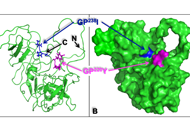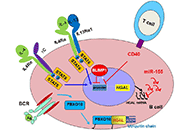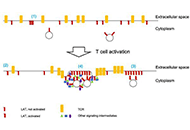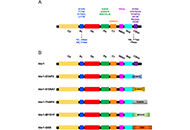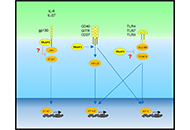
The Role of Adaptor Proteins in Lymphoid Cell Signaling
Guest Editor
Dr. Noah Isakov E-Mail
Department of Microbiology, Immunology and Genetics, Faculty of Health Sciences, Ben Gurion University of the Negev, P.O.Box 653, Beer Sheva 84105, Israel
Research Keywords: Signal transduction, tyrosine kinases, adaptor proteins, T cell activation, immune regulation
About the Special lssue
Adaptor proteins are devoid of intrinsic catalytic activity but possess multiple protein-binding modules which can interact independently or simultaneously with distinct effector molecules and orchestrate the spatial and temporal formation of signal transducing multiprotein complexes. By linking activated cell-surface receptors to their downstream effector molecules, adaptor proteins promote signal propagation, thereby regulating physiological responses, such as cell division, differentiation, death and metabolism.
Individual adaptor proteins can deliver several different signals by utilizing distinct combinations of binding partners. In addition, the activity of adaptor proteins is subject to regulation by enzymes, such as kinases and isomerases, which modulate their structure and have impact on their ability to interact with distinct effector molecules.
Efforts by many investigators have led to the identification and characterization of a large number of adaptor proteins and demonstrated the positive and negative roles of these molecules in signal transduction.
Many of the adaptor proteins were initially identified in lymphoid cells, in which they couple T- and B- lymphocyte antigen receptors to downstream signaling pathways which regulate lymphocyte development and immune responses. Adaptor proteins are found in all type of lymphocyte subpopulations and are involved in the regulation of their distinct effector functions.
In general, adaptor proteins in lymphoid cells are critical components of mechanisms leading to inflammation and activation of the distinct immune functions. They also take part in processes that promote immune tolerance and contribute to aberrant immune functions that result in anergy and autoimmunity.
The present Special Issue will focus on a number of adaptor proteins that play essential roles in the regulation of lymphoid cell functions under normal and pathological conditions. Special emphasis will be given to adaptors that regulate signal transduction downstream of the B cell and T cell antigen receptors, as well as receptors for agonists and antagonists that contribute to the fine tuning of the immune response. This Special Issue will also include detailed description of selected adaptor protein domains and epitopes involved in the protein-protein interaction processes, their mode of regulation and their binding partners. Both original research and focused review manuscripts are welcomed.
Keywords: Adaptor proteins, signal transduction, T cell and B cell activation, immune regulation
Published Articles
